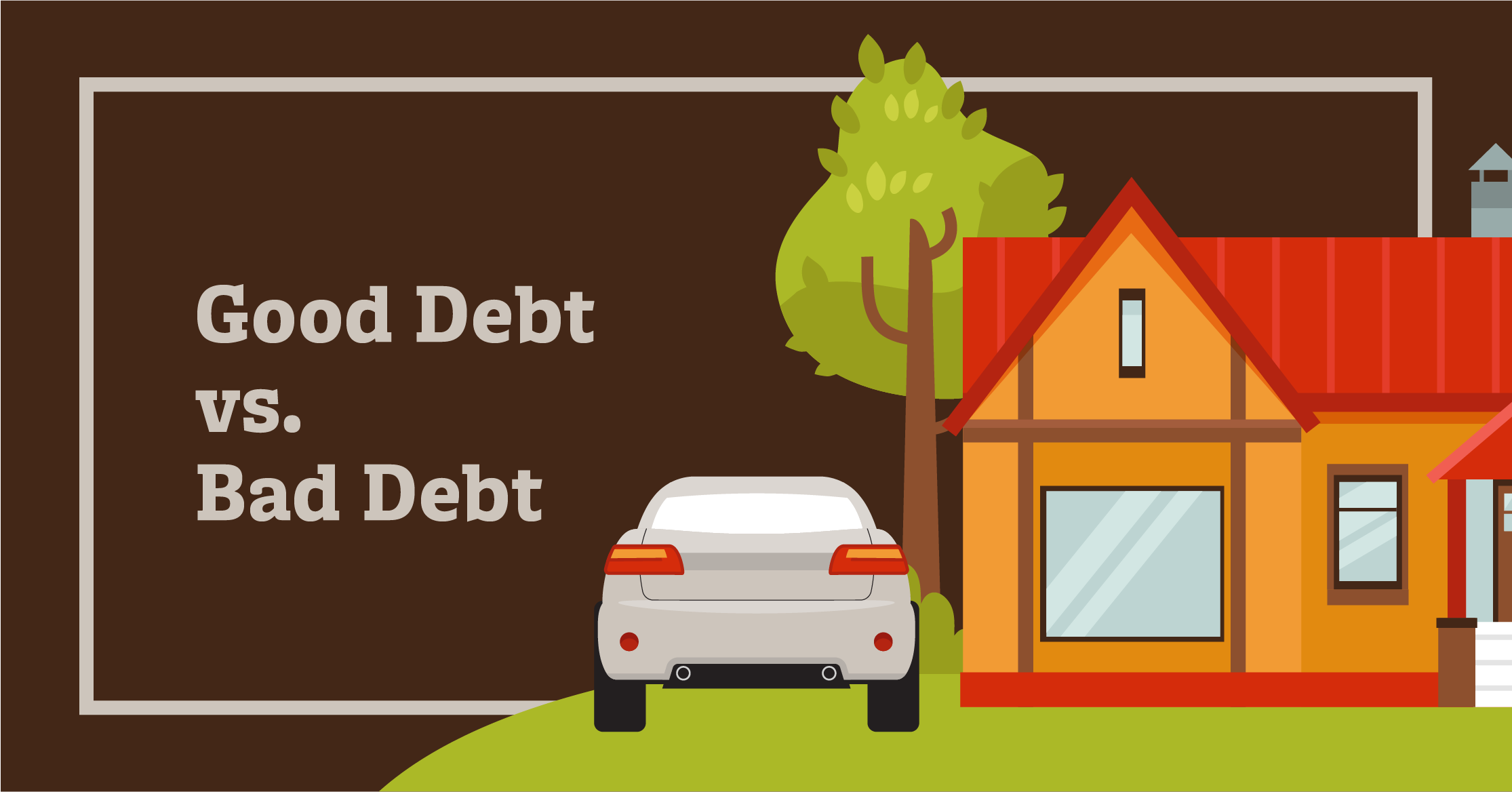
July 9, 2021
Learning to distinguish between good and bad debt can be simple. Good debts are low-interest debts that help you to achieve your financial goals. These, however, can pile up easily and turn into bad debts. Bad debts are expensive, high-interest debts that are detrimental to your financial situation when spent on items that lose their value quickly. Here are a few common loans and debts to consider:
Good: Student loans are generally considered to be good debt because you are trying to advance your education to earn a higher salary. The benefit of student loans is lower interest rates compared to other kinds of debt. You can view it as more of an investment for your future.
Bad: Student loans can become bad debt if you don’t set a limit to how much you are borrowing. By not setting a limit, you might spend the rest of your life paying off your student loans. A good tip is to not borrow more than what you expect your starting salary to be when you are finished with school.
Good: Credit cards get a bad name because they are the easiest to overspend. But credit cards should be considered good debt as they help you build credit overtime. This can help you secure better loans and interest rates for when you are investing in a big purchase like a house or car. It only works as good debt if you don’t spend beyond what you can afford and you pay your bills on time.
Bad: Carrying a balance with a credit card that has a high-interest rate can lead to a lot of extra fees and costs. Avoid spending on lifestyle purchases and non-essential expenses that decrease in value through the years.
Good: Probably the biggest financial step you’ll make in your life; a mortgage debt is often considered good debt. It is an investment that leads you to become a homeowner. With good credit, you can get low-interest rates and even tax benefits.
Bad: Avoid borrowing more than you can comfortably afford. Know how much you can afford to spend on a house and keep your mortgage payment under 40% of your income.
Good: Transportation is an essential purchase if you don’t live in a city with a functional public transport system. Most auto loans have low-interest rates if you have a good credit score.
Bad: Car loans can turn bad quickly if you have a long repayment term and if you end up borrowing too much. Cars tend to lose their value quickly, so you want to think carefully about how much your car is worth before taking out a loan. You might end up paying more than the car is worth.
Having too much debt can strain your budget and prevent you from reaching your future goals. Always read the fine print and do your research before taking out any loans. You should look at the big picture of how your debts fit in your overall budget. If you have questions or are looking to take out a loan, reach out to our personal bankers today to learn more.